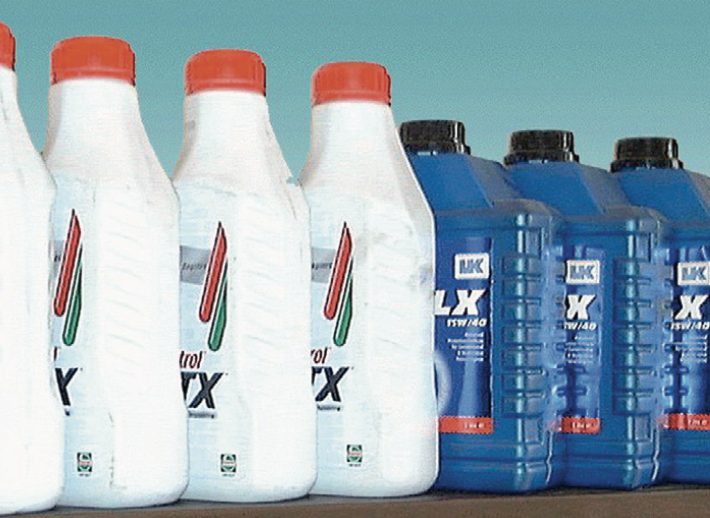Engine lubrication is one of the most important aspects of vehicle maintenance that is often overlooked. It plays a crucial role in ensuring that your engine operates smoothly and efficiently. In this blog, we will explore the importance of engine lubrication and the various types of engine oils available in the market.
What is Engine Lubrication?
Engine lubrication is the process of providing a layer of oil between moving parts to reduce friction and wear. Without lubrication, the metal components in your engine would rub against each other and cause damage. Lubrication also helps to remove heat from the engine, preventing it from overheating.
Why is Engine Lubrication Important?
Proper engine lubrication is vital for the longevity and performance of your vehicle. If your engine lacks proper lubrication, it can cause premature wear and tear, resulting in costly repairs or even engine failure. Additionally, without proper lubrication, your engine may not operate efficiently, leading to decreased fuel economy and reduced performance.
Types of Engine Oils
There are several types of engine oils available in the market, each with its unique characteristics and properties. The most common types include:
- Conventional Oil – This is the standard oil that most vehicles come with. It is made from crude oil and provides basic engine protection. It requires frequent oil changes, typically every 3,000 miles.
- Synthetic Oil – This is a man-made oil that is designed to provide superior engine protection. It lasts longer than conventional oil and can typically go up to 7,500 miles between oil changes.
- High-Mileage Oil – This type of oil is designed for vehicles with over 75,000 miles on the odometer. It contains additives that help to reduce oil leaks and engine wear in older engines.
- Racing Oil – This oil is specifically designed for high-performance engines that operate at high temperatures and pressures. It is more expensive than conventional or synthetic oils and is typically used by professional race teams.
In conclusion, engine lubrication is a critical aspect of vehicle maintenance that should not be overlooked. It is essential to use the right type of oil for your engine and to change it regularly to ensure maximum performance and longevity. Remember, a well-lubricated engine is a happy engine!
As mentioned earlier, engine lubrication is crucial because it reduces friction between moving parts and helps to dissipate heat. Friction occurs when two metal surfaces rub against each other, causing wear and tear. The oil layer between these surfaces acts as a barrier, reducing friction and preventing damage. It also helps to carry away dirt and debris that may accumulate in the engine, keeping it clean and functioning properly.
Additionally, engine oil is designed to withstand high temperatures without breaking down or evaporating. When the engine runs, it generates a lot of heat, and the oil must be able to handle this heat without becoming too thin or losing its lubricating properties. If the oil breaks down or evaporates, it can lead to metal-to-metal contact, which can cause severe damage to the engine.

Choosing the right type of oil for your engine is also important. Modern engines are designed to operate with specific types of oil, and using the wrong type can lead to engine damage. The owner’s manual for your vehicle will specify the recommended oil viscosity and type, and it’s important to follow these recommendations.
Regular oil changes are also essential for engine lubrication. Over time, the oil in your engine can become contaminated with dirt and debris, which can reduce its effectiveness. Regular oil changes help to ensure that your engine is always well-lubricated and functioning correctly.
In summary, engine lubrication is essential for the proper functioning and longevity of your vehicle. It reduces friction between moving parts, dissipates heat, and helps to keep the engine clean. Choosing the right type of oil and changing it regularly are critical steps in maintaining your engine’s health and performance.
Advantages:
- Reduces friction between moving parts, preventing premature wear and tear.
- Dissipates heat, preventing overheating and potential engine damage.
- Helps to keep the engine clean by carrying away dirt and debris.
- Improves engine efficiency and performance, leading to better fuel economy and power.
- Increases the lifespan of the engine, reducing the need for costly repairs and replacements.
Disadvantages:
- Oil leaks can occur, causing damage to other engine components and potentially leading to engine failure.
- Overfilling or underfilling the oil can cause engine problems.
- Choosing the wrong type of oil for your engine can also cause damage.
- Regular oil changes can be time-consuming and costly.
- Improper oil disposal can harm the environment.
Overall, the advantages of proper engine lubrication far outweigh the potential disadvantages. By following recommended maintenance schedules, choosing the right type of oil, and monitoring oil levels and quality, you can ensure that your engine is properly lubricated and functioning at its best.







